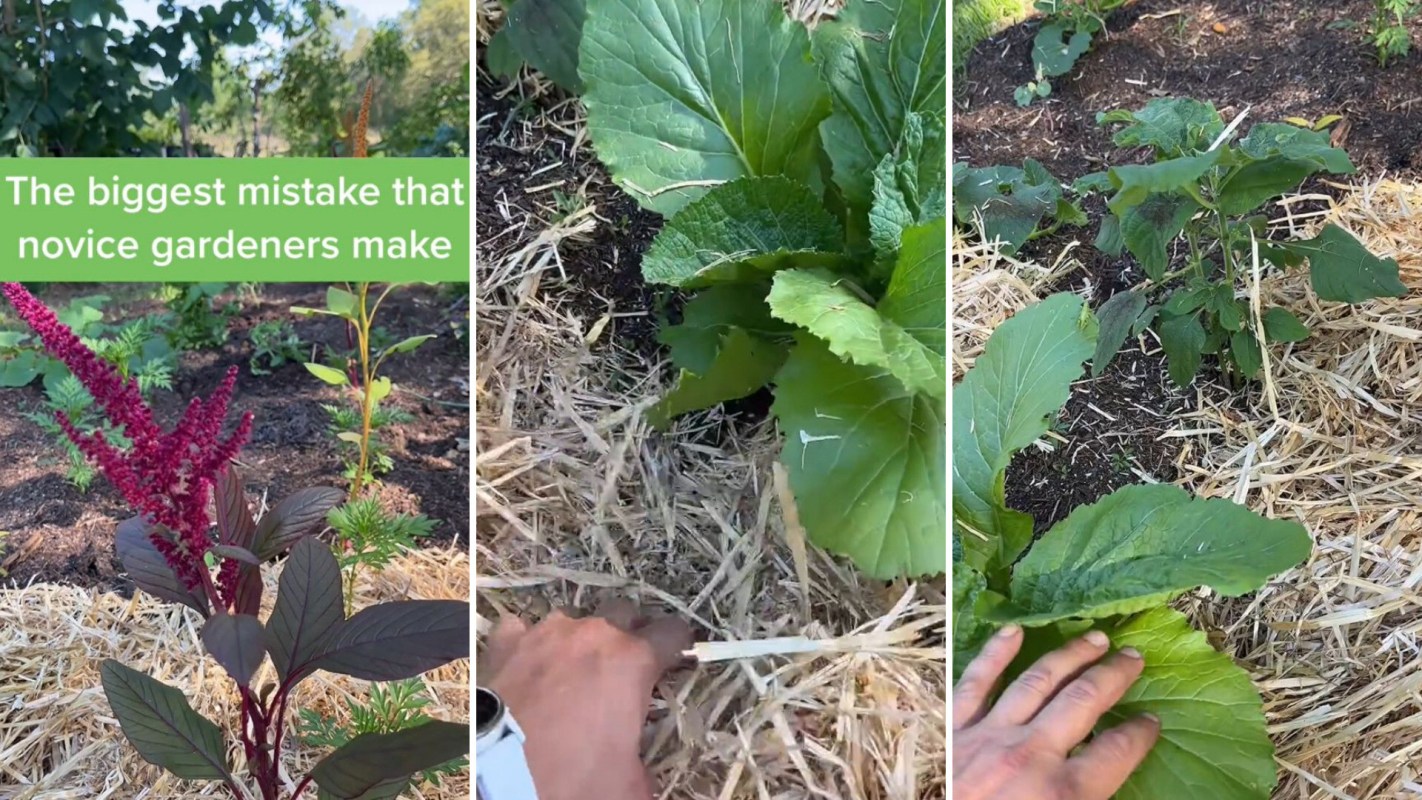A TikTok gardening pro took to the platform to share the number-one mistake he sees novice gardeners consistently making.
The scoop
PermaculturePlants (@permacultureplants), also known as "The Plant Man," is an expert gardener who provides amazingly thorough gardening tips that come from experience.
He specializes in edible landscapes and growing your own food, often sharing videos that cover everything from cultivating avocados to how to attract pollinators to your yard.
After working with countless clients over the years, The Plant Man says he has noticed a common blunder beginner gardeners tend to make — not covering their soil in any type of mulch.
The main benefit covered soil provides is an ecosystem for friendly bacteria and other microorganisms to thrive.
But basic hardware store soil isn't enough for a successful garden, as uncovered soil leaves your plants vulnerable, with a high risk of failure.
@permacultureplants Level up your gardening game this year and focus on building your soil structure. The key to remember is if it's a soft stemmed plant, use a soft stemmed mulch. If it's a hard stemmed plant use a woody base mulch. #gardening #garden #gardentips #gardenhacks #gardening101 ♬ original sound - PermacultureFX (aka Plant Man)
And since there are many different types of mulch, The Plant Man has broken down which kind is best to use for specific plants.
"When mulching around annual vegetables or things that have a soft-stem, think soft-stemmed mulch, which is straw," he says. "Wood chips, on the other hand, are great around fruit trees."
He goes on to explain how straw will more quickly decompose and provide beneficial bacteria to grow your vegetables and flowers, while wood chips break down to create a fungally dominated soil structure that helps trees thrive.
How it's helping
Gardening offers a multitude of benefits for your health, your wallet, and the planet.
Maintaining a garden has been proven to reduce stress and improve mental well-being. Growing your own produce can lead to substantial savings on grocery bills while also ensuring access to fresh, organic food that has remained untouched by harmful pesticides.
Moreover, gardening is a huge win for the environment. Plants purify our air and promote biodiversity in our yards, allowing crucial pollinators to thrive and continue to protect our food supply.
Plus, by lowering demand for store-bought produce, we can cut down on the harmful air pollution that is generated by shipping produce from location to location.
What everyone's saying
The comments on Permaculture's video back up just how essential this method is.
"As a 20+ year gardener/landscaper, I second this!" commented one viewer.
"Thanks for the tips! Learned something new," wrote another.
Join our free newsletter for easy tips to save more, waste less, and help yourself while helping the planet.









